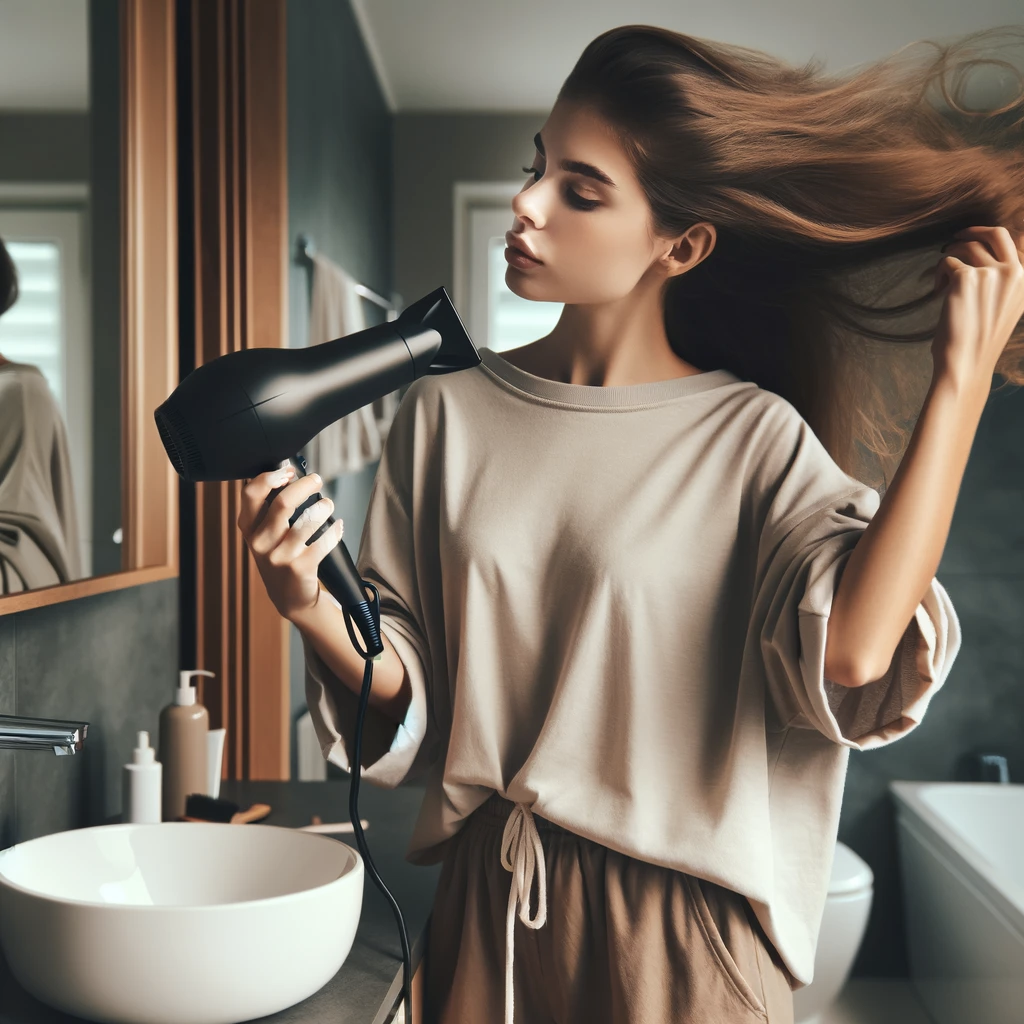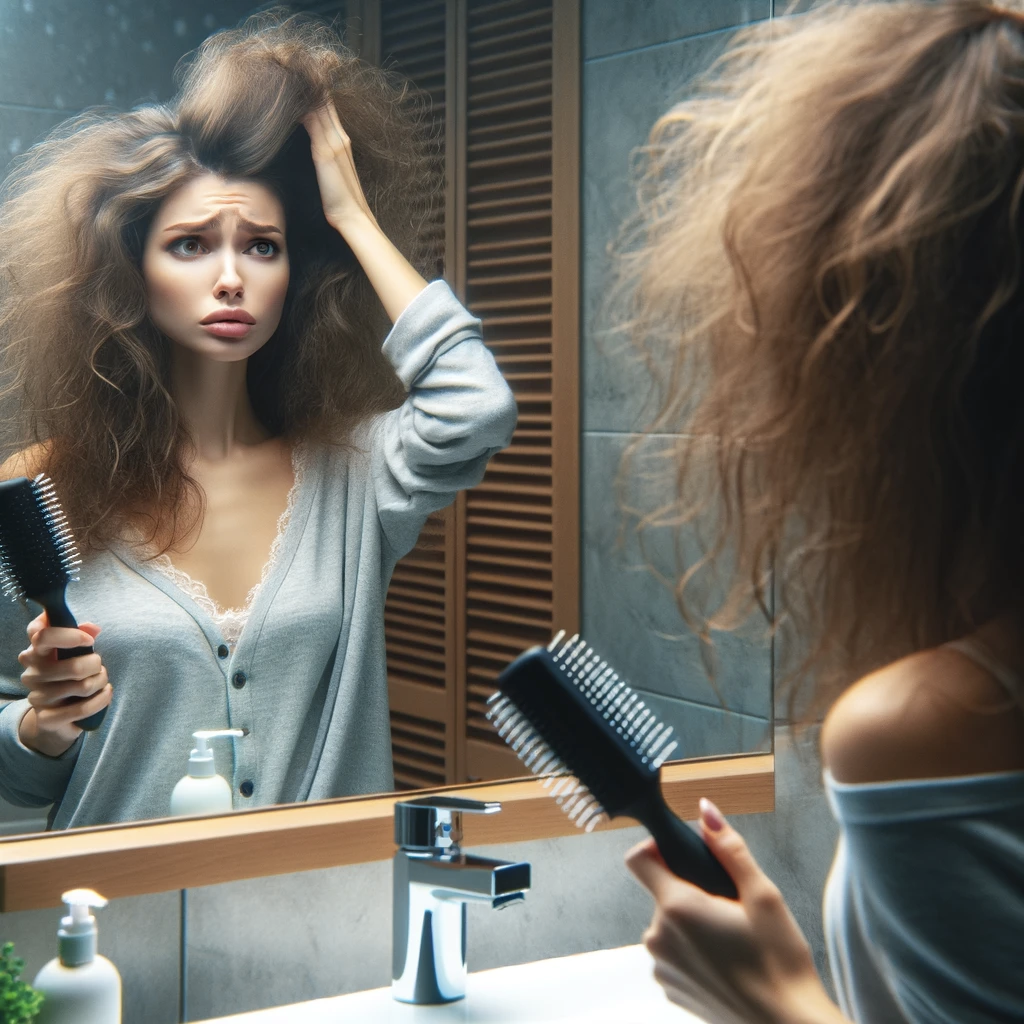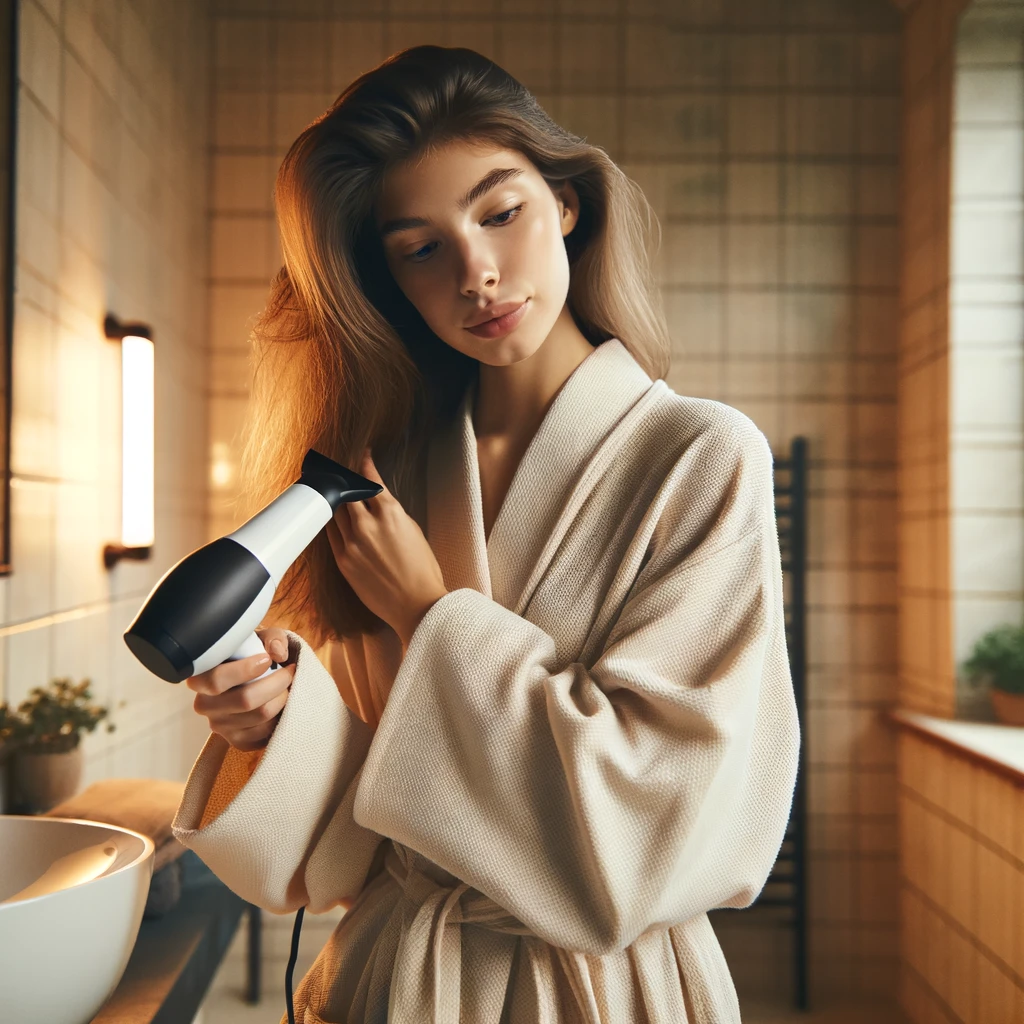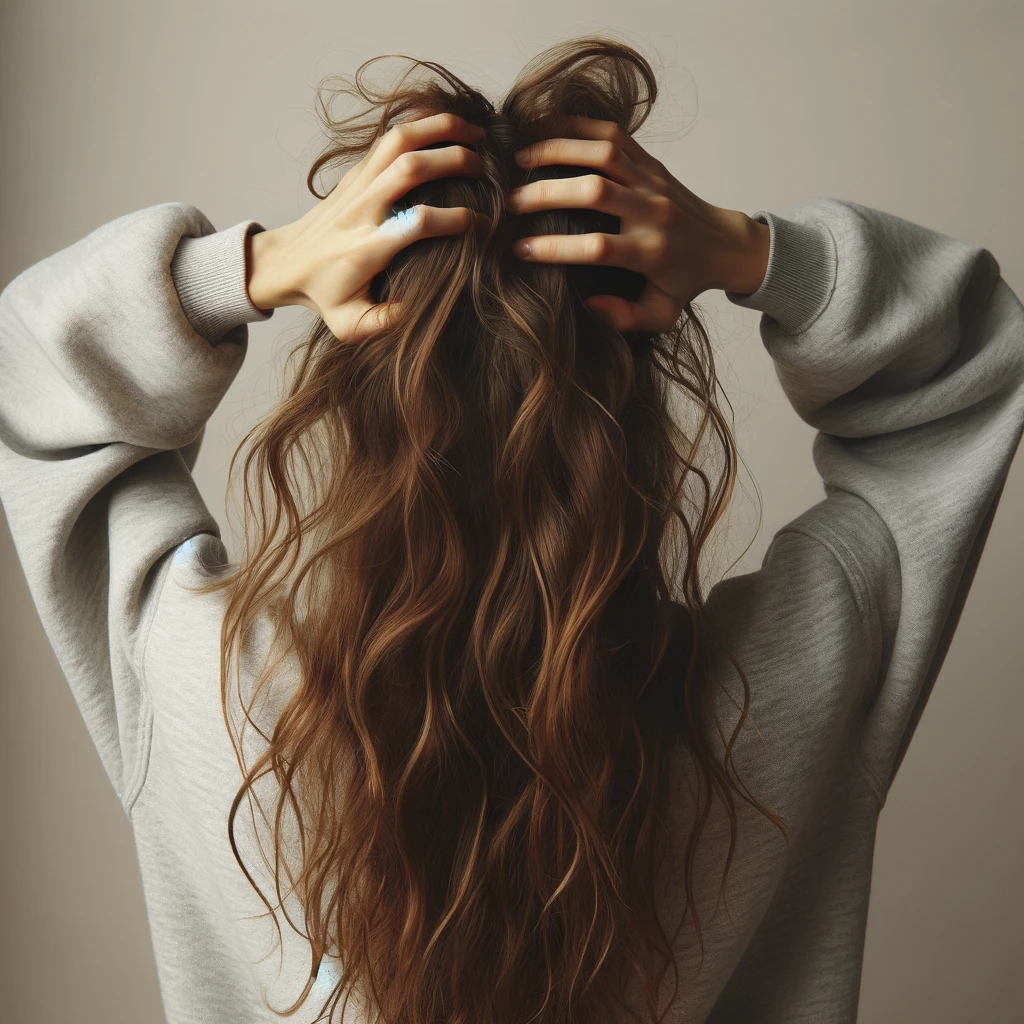How to Get Rid of Greasy Hair: Expert Tips
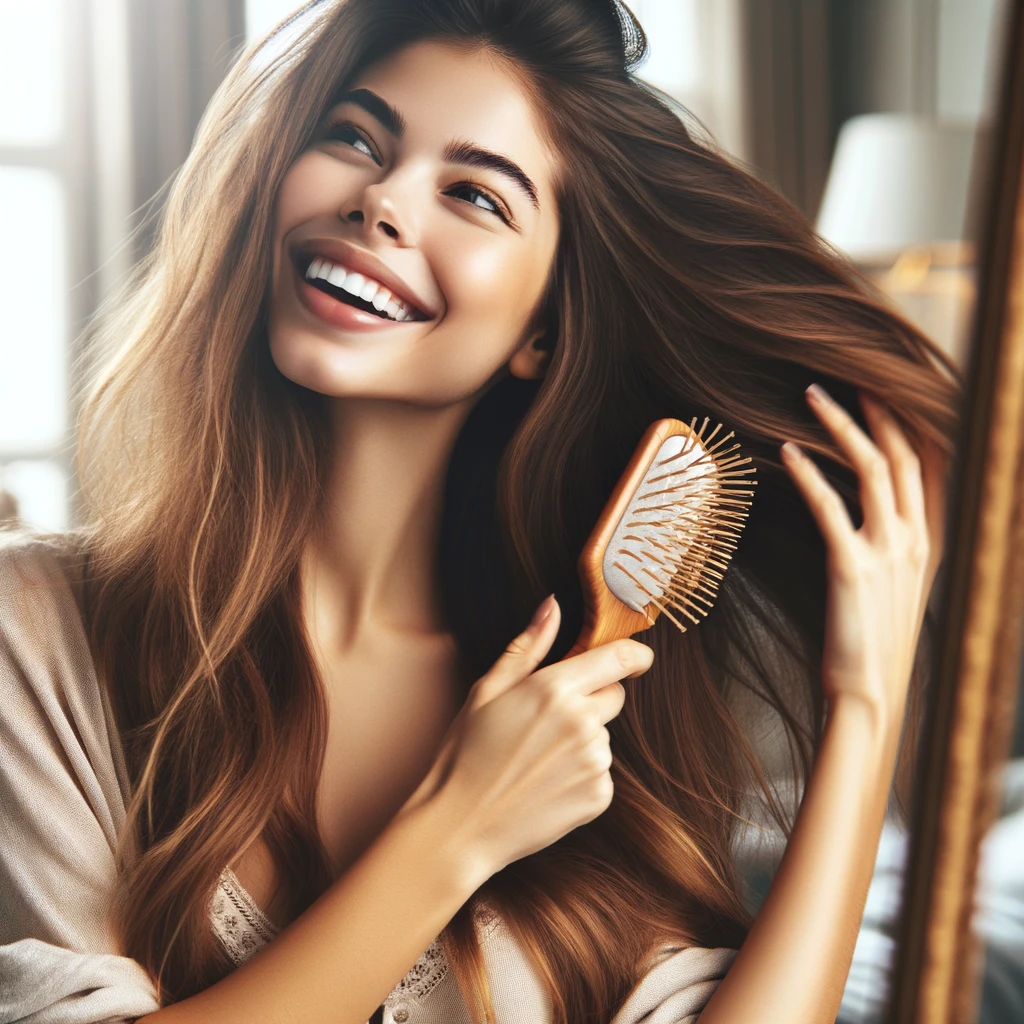
In this article:
Struggling with greasy hair can be a real hassle. It's not just about looks; oily hair can also lead to scalp discomfort. You're in the right place if you're wondering why your hair gets greasy and how to tackle this issue.
In this article, we dive into the causes of greasy hair and share
Why is My Hair So Greasy?
Greasy hair results from excess oil production from the sebaceous glands on your scalp. These glands produce oil to keep your hair and scalp moisturized. However, various factors can cause these glands to produce more oil than needed, leading to that greasy hair look and feel.
Common Causes of Greasy Hair
- Applying Conditioner to the Roots: Conditioner is meant to moisturize your hair, but it can make your scalp and hair look oily when applied to the roots. To avoid this, apply conditioner only to the ends of your hair, where it's most needed.
- Overbrushing: Overbrushing can stimulate your scalp and increase oil production. Try to brush your hair just enough to detangle and style it.
- Using Dirty Towels: Using a towel that's not clean can reintroduce oil and dirt to your freshly washed hair. Always use a clean towel.
- Health Conditions: Hormonal changes can lead to increased oil production. This is common during puberty, pregnancy, or when using certain medications like birth control. Other health conditions can also contribute to greasy hair.
- Genetics: Sometimes, the tendency to have greasy hair is simply in your genes. If your family members have oily hair, you might also be more prone to it.
- Humidity: High humidity levels can make your hair absorb moisture from the air, making it feel and look greasier than usual.
- Stress: Stress can impact your hormone levels, increasing oil production on your scalp.
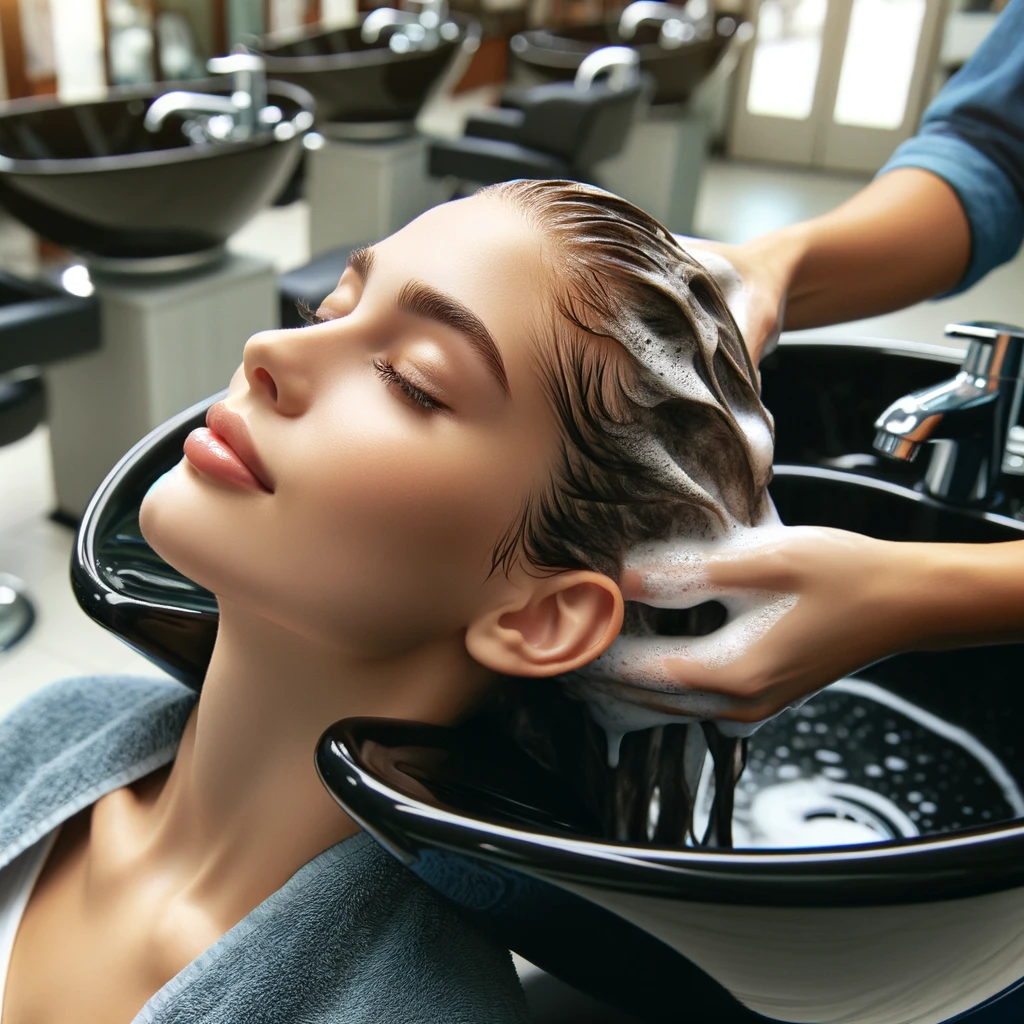
How to Fix Greasy Hair?
If you're wondering how to fix greasy hair, we've got you covered with expert tips and tricks. Let's get into these practical solutions:
Shampoo According to Your Hair Type Needs
- Choose the Right Shampoo: Opt for a shampoo designed for oily hair. These products help clean the scalp effectively without adding extra moisture.
- Shampoo Daily: If your hair gets greasy quickly, washing it daily can help regulate oil production. However, avoid over-washing, which can stimulate your glands to produce even more oil.
Condition and Rinse Properly
- Focus on the Ends: Apply conditioner only to the ends of your hair to prevent adding extra grease to your scalp.
- Rinse Thoroughly: Wash out all the shampoo and conditioner to avoid residue that can make hair look greas
No Touching Hair
Keep your hands off your hair to prevent transferring oils from your hands to your hair. The more you touch, the greasier it can get.
Use Dry Shampoo
Dry shampoo is an excellent solution between washes. It soaks up excess oil and adds volume, leaving your hair looking refreshed.
Avoid Extra Moisture
Skip oil-based styling products that can make your hair look greasier. Opt for lightweight products that don't add moisture.
Regularly Clean Your Brush
A clean brush means less oil transfer. Regularly washing your brush helps keep your hair cleaner for longer.
Sweat Management
After a workout, use a dry shampoo or rinse your hair to remove sweat, which can make your hair look greasy
Healthy Diet
What you eat can affect your hair. A balanced diet can help regulate oil production.
Apply Apple Cider Vinegar
A rinse with apple cider vinegar can help balance the scalp's pH and reduce oiliness.
Exfoliate Scalp
Gently exfoliating your scalp can remove buildup and help your hair follicles breathe.
Air Dry
Letting your hair air dry avoids excessive heat that can stimulate oil production.
Wash Hair with Warm Water
Hot water can dry out your scalp, leading to more oil production. Use warm water instead.
Use a Sweatband for Workouts
Keep sweat at bay during exercise to prevent it from making your hair greasy.
Adopt a Proper Hair and Scalp Care Routine
A consistent routine tailored to your hair's needs can make a big difference in managing grease.
Final Thoughts
In summarizing our exploration into managing greasy hair we have came up with key strategies that include:
- Use shampoos and conditioners formulated for oily hair.
- Washing your hair with the frequency that suits its needs.
- Incorporating products like dry shampoo for oil control between washes.
Luxe Cosmetics offers an excellent solution for those searching for products designed to address oily hair while nurturing hair health. Luxe Hair Growth Shampoo and Conditioner are standout, expertly crafted to regulate oil production without compromising hair and scalp health.

Josef Mohamed
Josef Mohamed is a Content Marketer and Web Designer with over 6 years of experience.He brings a wealth of knowledge to his work, making him a reliable source for readers interested in practical insights about beauty.His writing style is straightforward, aiming to provide real facts and avoid common myths in the beauty industry.


